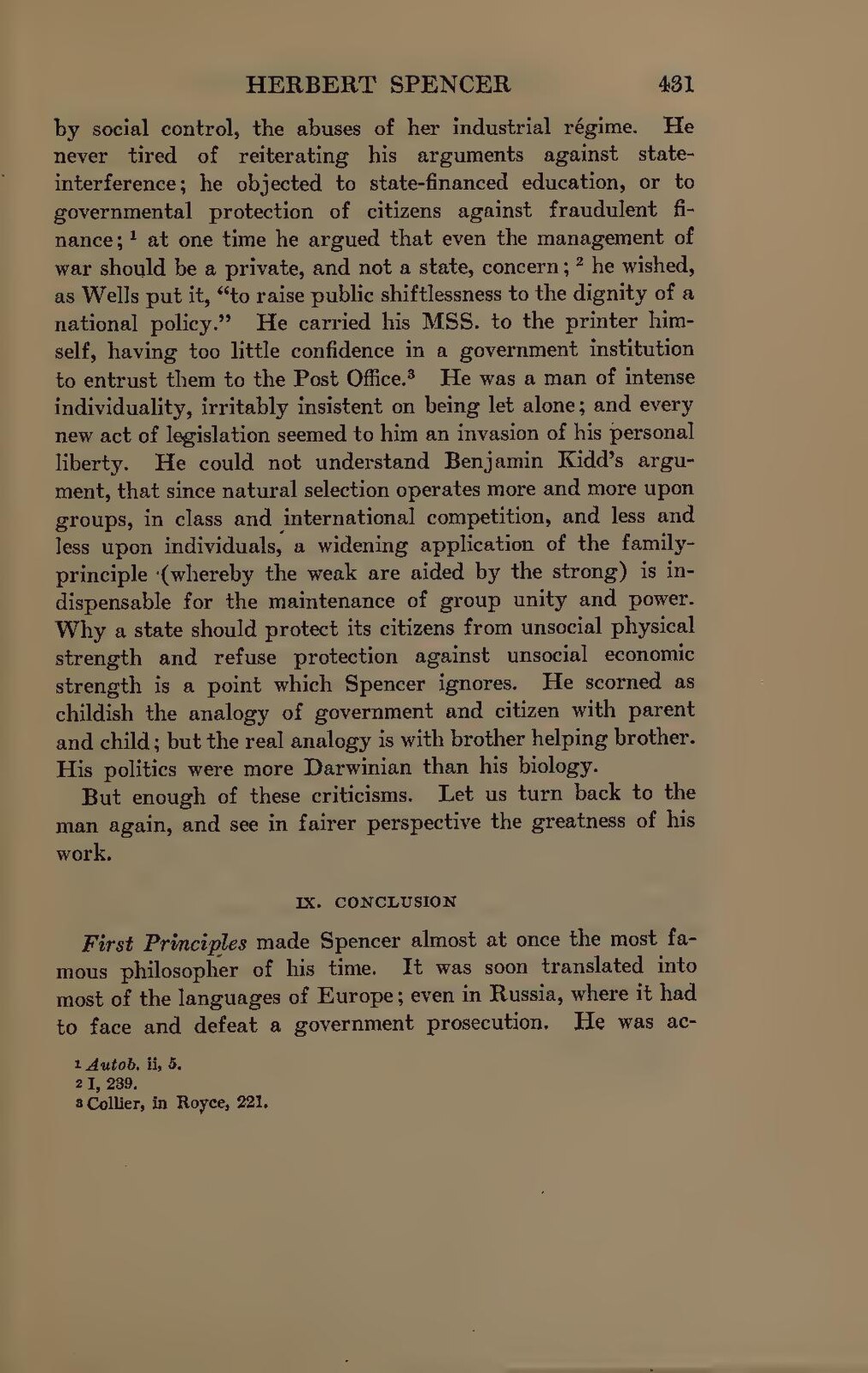by social control, the abuses of her industrial régime. He never tired of reiterating his arguments against state-interference; he objected to state-financed education, or to governmental protection of citizens against fraudulent finance;[1] at one time he argued that even the management of war should be a private, and not a state, concern;[2] he wished, as Wells put it, "to raise public shiftlessness to the dignity of a national policy." He carried his MSS. to the printer himself, having too little confidence in a government institution to entrust them to the Post Office.[3] He was a man of intense individuality, irritably insistent on being let alone; and every new act of legislation seemed to him an invasion of his personal liberty. He could not understand Benjamin Kidd's argument, that since natural selection operates more and more upon groups, in class and international competition, and less and less upon individuals, a widening application of the family-principle (whereby the weak are aided by the strong) is indispensable for the maintenance of group unity and power. Why a state should protect its citizens from unsocial physical strength and refuse protection against unsocial economic strength is a point which Spencer ignores. He scorned as childish the analogy of government and citizen with parent and child; but the real analogy is with brother helping brother. His politics were more Darwinian than his biology. But enough of these criticisms. Let us turn back to the man again, and see in fairer perspective the greatness of his work.
First Principles made Spencer almost at once the most famous philosopher of his time. It was soon translated into most of the languages of Europe; even in Russia, where it had to face and defeat a government prosecution. He was ac-
